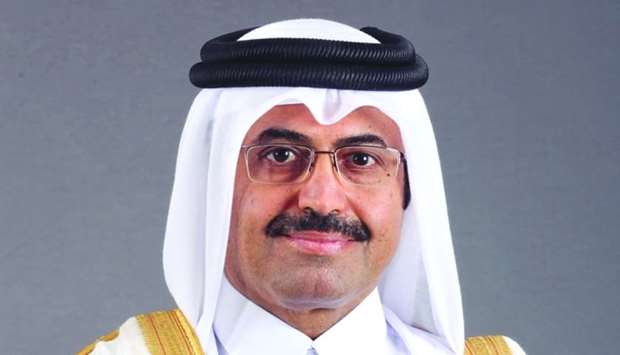He said he supports the continuation of the agreement in an interview to the official Qatar News Agency (QNA).
“Only when global oil inventories returned to the five-year average should work begin on an agreement suited to the market conditions,” al-Sada said.
A group of the world’s largest oil producers reached a deal in Vienna in November 2016 to curb production for the first time in eight years. Opec and non-Opec producers led by Russia agreed in November last year again in Vienna to extend the oil output cuts until the end of 2018 to clear the global glut of crude.
On the developments in the global oil market since the Vienna agreement, Dr al-Sada said the pact proved to be the right direction to take considering the global oil production and trade.
He explained that if the level of oil reserves returned to balance, or to the average of the last five years, whether this is achieved by the next Opec meeting in June, or at the time determined by market developments, then only a safe agreement should be initiated on the basis of then market conditions. “So we think it is premature to put forward an idea of a strategy to terminate the agreement at the current stage.”
On efforts made by Qatar during its chairmanship of Opec, he said the historic Vienna agreement came as a direct result of the great and continuous support and wise policy of His Highness the Emir Sheikh Tamim bin Hamad al-Thani which was appreciated by all the parties concerned.
Al-Sada said Qatar during 2015 and 2016 made great efforts to coordinate positions and bring together views, which were accepted by the international community, especially the oil-producing countries and led to the historic decisions in Vienna. “This showed the world that Opec has taken on the responsibility to rebalance the market and reduce the global surplus of oil to serve the global economy and producing countries and consumers alike.”
In a meeting held in Doha on 17 November 2016, both Opec and non-Opec states participated and contributed to bringing together views that led to the historic declaration of co-operation a few weeks later in Vienna, HE Dr al-Sada said.
He attributed the success of the agreement to the unprecedented commitment by the signatories since November 2017. “All participating countries showed a serious and clear commitment to continue working together with a view to restoring and maintaining balance and stability in the global oil market,” he said.
The minister said the return of balance to the market started since last May, with the surplus in the world trade stocks shrinking to the lowest level since July 2015, which is the strongest evidence of the success of the agreement.
He said a sense of responsibility towards the importance of securing oil supplies prompted the producing countries to abide by the terms of the cut. According to him, surplus oil stocks induced lower prices which in turn reduced investments in the oil sector at an unprecedented rate of about 25% in 2015 and 2016, raising fears that it would negatively impact global production capacity in the medium and long term. “This sense of responsibility was one of the reasons for the strong commitment of the participating states,” al-Sada said.
On whether the signatories will continue to abide by the reduction agreement with the oil prices steadily increasing and the commitment ratios achieved being very high, HE the Minister of Energy and Industry said that by looking “at the level of their commitment , the agreement is expected to remain strong”. He said this is more certain especially as these countries have witnessed the positive results of the agreement and its positive impact on producers as well as consumers .
On the fair price for a barrel of oil , the minister said the task of the producing countries is to adhere to the reduction quotas in order to rebalance the global oil market and “the price of a barrel of oil is determined by the oil market itself.”

